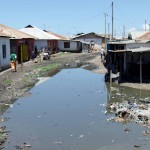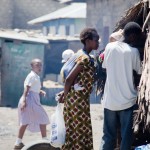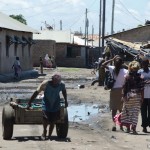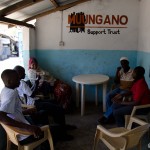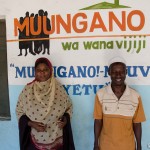Addressing urban WASH issues in Informal Urban Settlements
Yesterday I visited an Informal Urban Settlement in Mombasa, in an area called Likoni. Informal Urban Settlements, or slums, are areas characterised by poor housing and squalor, where the population lack official land tenure rights. Globally, more than 1 billion people live in slums, a figure that is rising all the time as people move to cities in search of employment. Water, Sanitation and Hygiene (WASH) issues are typically very challenging, as people lack access to clean water, and waste disposal (either of human excrement or household rubbish) is haphazard and unregulated.
Yesterday I visited Khasim, a young man about my age, who was born in Likoni and has lived there his whole life. For Khasim, the daily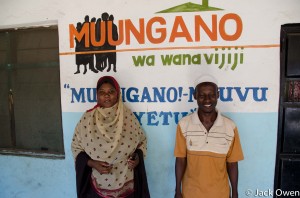 struggle to make ends meet is complicated by the lack of access to basic services. The Mombasa water and Sewerage Company does not supply to his area, citing supply side issues. “The company supplies to our neighbours ward, but not to ours. They say there is not enough water, but why do they get priority over us?” he says. Indeed, the pipe carrying fresh water goes through Khasim’s area, rubbing salt into the wound.
struggle to make ends meet is complicated by the lack of access to basic services. The Mombasa water and Sewerage Company does not supply to his area, citing supply side issues. “The company supplies to our neighbours ward, but not to ours. They say there is not enough water, but why do they get priority over us?” he says. Indeed, the pipe carrying fresh water goes through Khasim’s area, rubbing salt into the wound.
In fact salt is the main problem here. Because of the lack of decent supply, local people hand dig shallow wells, and sell the water by the 20 litre jerry can to their neighbours. The water is salty and untreated, but is all people have.
As I walked around Likoni, I was struck by the normality of the place. Yes it is dirty, and rubbish lies at every corner, but people are living here just like anywhere else. What is more, when you look closely and talk to the people. you find pockets of resistance. Khasim is a member of a ‘Muungano Wa Wanavijiji’, or Slum Dwellers Association. Every week he meets his fellow community members, and they discuss ways of improving their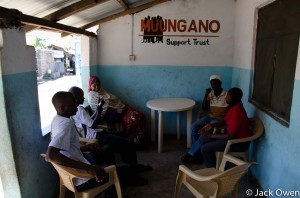 environment and their prospects for a better life. Their aim is to become empowered through knowledge and collective action, and to use their strength to pressure the government into action. People here see the 5 star beach hotels and wonder, if they have clean water, why can’t we?
environment and their prospects for a better life. Their aim is to become empowered through knowledge and collective action, and to use their strength to pressure the government into action. People here see the 5 star beach hotels and wonder, if they have clean water, why can’t we?
It is a good question, and one the government hasn’t been able to answer.
Groups like the Muungano in Likoni ask tough questions, and are often frustrated by the response. They feel ignored and marginalised. But rather than remaining quiet, these people are taking it on themselves to mobilise for action. They meet regularly, save money collectively, and talk about what they can do now. Khasim’s group have plans to start treated the less salty boreholes they have, and want to start a rubbish collection company. It seems they are willing and motivated – exactly the kind of community characteristics so important if development work is to succeed.
The Water Project doesn’t work in urban areas at the moment. That is not to say we have chosen not to, rather that the opportunity has not been there for us. Our strength lies in our partners, and currently we do not have a relationship with an urban focused NGO in Africa. That may change in the coming months. I’m currently working with a group in Mombasa who do work with slum communities. It is a process, of discussion and dialogue, but in the coming months it may be that we are able to start funding an urban program. If we can find a way of supporting the work of people like Khasim, we will.
The challenges are great, and the need pressing. With more than 50% of the world’s people living in urban environments, this issue will not go away. We recognise that, and are starting to think about playing our small part in aiding the inhabitants of slums as they try and improve their lives.
As I live in Mombasa, I see these issues playing out every day. Mombasa is a dynamic and rich place, full of life and all the signs of it. I’ll write more on this subject, and welcome comments as we try and figure out if there is a place for The Water Project here. Thanks for reading.
Home More Like ThisTweet
